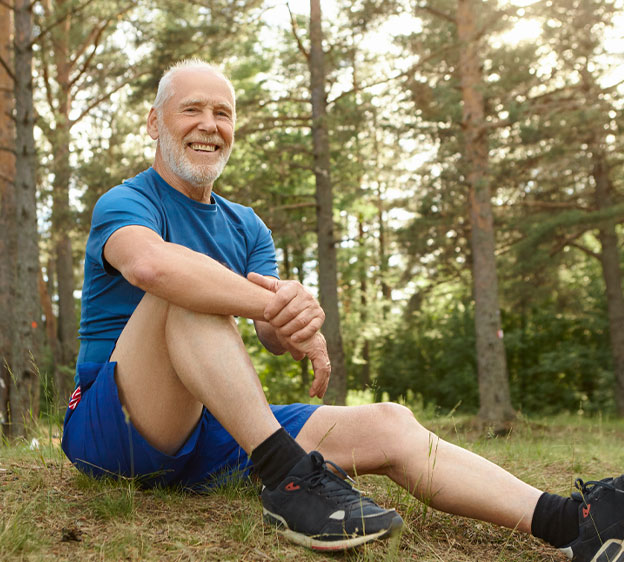
If you have knee osteoarthritis, you may find the joint stiff, swollen or painful. But knee pain doesn’t have to ruin your life. Research shows that strengthening your quadriceps — a.k.a. the muscles in your thighs — can help protect your knee and lessen pain. And for people who do not yet have arthritis in their knees, strong quads may even help prevent or delay the onset.
“Building strength in the quadricep muscle group is important for reducing knee pain due to osteoarthritis because it builds support for the knee joint,” says Mary Descaro, physical therapist at Beaufort Memorial.
Read More: Knees and Osteoarthritis
How Quad Strength Affects Knees
Repeated studies show that quad weakness is highly correlated with osteoarthritis of the knee, a condition that can develop over time due to many factors including age, predisposition, strength, diet, and quality of general health. When the thigh muscles aren’t strong, they do not properly support the knee. If they are strong, they act as a natural knee brace, making sure your knee joint doesn’t experience too much stress. If you have arthritis in your knee, your bones may rub against each other because the cartilage has worn away and there is less protective joint fluid with hyaluronic acid circulating to cushion them.
“While strengthening the muscles will not repair the cartilage, it will help lessen your pain and improve mobility,” Descaro says.
Read More: Comparing Common Types of Arthritis
Simple Exercises for Quad Strength
The exercises below can help you strengthen your quads. If you don’t already exercise, it’s important to start out slowly so you won’t injure yourself. Always warm up first with gentle stretching or by riding an exercise bike, if you have one, for about 10 minutes.
Perform one set of the following exercises, starting with three to four repetitions of each move and working up to 10. Then add a second and eventually a third set as you get stronger.
- Mini-squat. Hold the back of a chair with your feet shoulder width apart. Bend your knees into a small squat and hold for six seconds. Slowly rise up, keeping your muscle tight.
- Quad stretch. Using the same chair, step one foot back until you feel a deep stretch in that thigh. Hold for 10 seconds. Repeat with your other leg.
- Leg lift. Sitting in the chair with a resistance band around your ankles, slowly lift one leg as high as you can and hold for six seconds. Repeat with your other leg.
- Leg raises. Lying flat on the floor, bend one knee while keeping your other leg straight. Lift the straight leg as high as 10 inches off the floor. Hold for five seconds. Repeat with your other leg.
- Back leg raises. Lying on your stomach with your legs straight, clench one thigh and lift your leg. Hold for five seconds, then lower. Repeat with your other leg.
- Stair steps. Standing at the bottom of a flight of stairs (or using a small stool), step one foot on the stair. Put the other foot on the stair, then move it back down to the floor. Repeat for one minute, then switch legs.
Working with a physical therapist is a great way to learn more exercises to strengthen your legs safely.
Read More: Aging With Arthritis
Other Ways to Improve Your Knee Pain
In addition to building up your thigh muscles, there are other actions you can take to improve the arthritis in your knee.
- Losing weight, if you are overweight, can help reduce stress on the knee.
- Avoiding high impact activities such as running and switching to lower impact workouts such as swimming will both strengthen your muscles and lessen stress on the joint.
- Eating an anti-inflammatory diet full of fruits and vegetables, along with taking supplements like glucosamine and chondroitin, may help.
Knee pain that does not improve after building up muscle strength, whether on your own or through physical therapy, may be a sign you need knee replacement surgery. The orthopedic providers at Beaufort Memorial can help you assess what treatment options work for you.
Struggling with knee pain? Request an appointment with a knee specialist on our orthopedic team.
